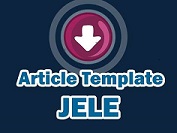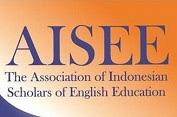ARE FUTURE EFL TEACHERS READY FOR INCLUSION? A CONVERGENT MIXED METHOD STUDY OF SELF-EFFICACY AND ATTITUDES
DOI:
https://doi.org/10.36706/jele.v12i1.75Keywords:
EFL pre-service teachers, inclusive education, self-efficacy, attitudesAbstract
Inclusive education is gaining prominence in English language teaching, especially in preparing future teachers to address diverse learner needs. Understanding self-efficacy and attitudes is essential, as both shape how teachers perceive their roles and determine their willingness to implement inclusive practices. This study examines the self-efficacy and attitudes of 68 Indonesian EFL pre-service teachers who were selected through purposive sampling from those enrolled in an Inclusive Education in ELT course. Using a convergent mixed methods design, data were collected through an adopted questionnaire and semi-structured interviews. Three participants were further selected for interviews using convenience sampling to provide deeper qualitative insights. Quantitative findings indicated that participants demonstrated a moderate level of self-efficacy and a moderately positive attitude toward inclusive teaching. A positive correlation was found between self-efficacy and attitudes, with self-efficacy in using inclusive instruction emerging as the only significant predictor of attitudes. Qualitative data supported and enriched these findings by revealing participants’ reflections on both the value and concerns in implementing inclusive practices. Overall, the study underscores the importance of targeted professional development in preparing EFL pre-service teachers for inclusive classrooms.
References
Aliyah, S. (2024). Implementation of law number 8 of 2016 concerning legal protection and fulfillment of rights of persons with disabilities in Indonesia. Jurnal Ilmu Sosial Dan Pendidikan (JISIP), 8(3), 2062–2076. https://doi.org/10.58258/jisip.v7i1.7226
Altarawneh, A. F., Alkhazaleh, M., Alkhazaleh, Z. M., & Tarawneh, R. T. (2023). School-based practicum and pre-service teachers’ self-efficacy: Impact and challenges. International Journal of Education and Practice, 11(2), 308–319. https://doi.org/10.18488/61.v11i2.3340
Aristya, F. S., Sowiyah, S., & Rini, R. (2024). The role of shadow teacher in inclusive school: A literature review. International Journal of Current Science Research and Review, 07(01), 602–608. https://doi.org/10.47191/ijcsrr/v7-i1-58
Chan, S. H., & Lay, Y. F. (2021). Effects of attitude, self-efficacy beliefs, and motivation on behavioral intention in teaching science. Eurasian Journal of Educational Research, 93, 210–262. https://doi.org/10.14689/ejer.2021.93.11
Creswell, J. W., & Creswell, J. D. (2023). Research Design, Qualitative, Quantitative and Mixed Methods Approaches. In SAGE Publications,Inc.: Vol. Sixth Edit (6th ed., Issue 1). SAGE.
Damayanti, A., Lintangsari, A. P., & Kusumawardani, I. N. (2022). Teachers’ efficacy in inclusive teaching: A study on EFL pre-service teachers. IJDS Indonesian Journal of Disability Studies, 9(02), 253–263. https://doi.org/10.21776/ub.ijds.2022.009.02.09
Ediyanto, E., Kawai, N., Hayashida, M., Matsumiya, N., Siddik, M. A. B., & Almutairi, A. T. (2021). Indonesian teachers’ attitudes toward Inclusive education. Discourse and Communication for Sustainable Education, 12(2), 31–44. https://doi.org/10.2478/dcse-2021-0014
Ediyanto, & Kawai, N. (2023). The measurement of teachers’ attitudes toward inclusive education: An empirical study in East Java, Indonesia. Cogent Education, 10(2). https://doi.org/10.1080/2331186X.2023.2229014
Ediyanto, Maulida, R., Atika, I. N., & Kawai, N. (2020). The pre-service teachers’ attitudes towards inclusive education: An empirical study in Yogyakarta City, Indonesia. Discourse and Communication for Sustainable Education, 11(1), 65–73. https://doi.org/10.2478/dcse-2020-0007
Efendi, M. (2018). The implementation of inclusive education in Indonesia for children with special needs: Expectation and reality. Journal of ICSAR, 2(1), 142–147. https://doi.org/10.5195/ehe.2011.27
Efendi, M., Pradipta, R. F., Dewantoro, D. A., Ummah, U. S., Ediyanto, E., & Yasin, M. H. M. (2022). Inclusive Education for Student with Special Needs at Indonesian Public Schools. International Journal of Instruction, 15(2), 967–980.
Guest, G., MacQueen, K. M., & Namey, E. E. (2012). Applied Thematic Analysis - Greg Guest, Kathleen M. MacQueen, Emily E. Namey - Google Böcker. In Sage Publications. SAGE.
Hafid, A. (2021). Inclusion education policy in Indonesia. International Journal of Innovative Science and Research Technology, 6(4), 642–647. https://ejurnal.staiddimaros.ac.id/index.php/maruki/article/view/324
Hofman, R. H., & Kilimo, J. S. (2014). Teachers’ attitudes and self-efficacy towards inclusion of pupils with disabilities in Tanzanian schools. Journal of Education and Training, 1(2), 177. https://doi.org/10.5296/jet.v1i2.5760
Hofmann, V., & Müller, C. M. (2021). Language skills and social contact among students with intellectual disabilities in special needs schools. Learning, Culture and Social Interaction, 30, 100534. https://doi.org/10.1016/j.lcsi.2021.100534
Ijazah, F. (2019). Children with disabilities and education. UNICEF Indonesia. https://www.unicef.org/indonesia/documents/children-disabilities-and-education
Ismailos, L., Gallagher, T., Bennett, S., & Li, X. (2022). Pre-service and in-service teachers’ attitudes and self-efficacy beliefs with regards to inclusive education. International Journal of Inclusive Education, 26(2), 175–191. https://doi.org/10.1080/13603116.2019.1642402
Jumainah, J. (2023). A narrative inquiry of an English as a foreign language (EFL) teacher’s experiences in working with special needs students. Ebony - Journal of English Language Teaching, Linguistics, and Literature, 3(1), 45–52. https://doi.org/10.37304/ebony.v3i1.7954
Komarudin, K., & Kaeni, N. F. (2023). The obstacles of inclusive education implementation in Indonesia: A systematic review. GUIDENA: Jurnal Ilmu Pendidikan, Psikologi, Bimbingan Dan Konseling, 12(3), 382–401. https://doi.org/10.24127/gdn.v12i3.6537
Lancaster, J., & Bain, A. (2007). The design of inclusive education courses and the self-efficacy of preservice teacher education students. International Journal of Disability, Development and Education, 54(2), 245–256. https://doi.org/10.1080/10349120701330610
Leyser, Y., Zeiger, T., & Romi, S. (2011). Changes in self-efficacy of prospective special and general education teachers: Implication for inclusive education. International Journal of Disability, Development and Education, 58(3), 241–255. https://doi.org/10.1080/1034912X.2011.598397
Loreman, T., Sharma, U., & Forlin, C. (2013). Do pre-service teachers feel ready to teach in inclusive classrooms? A four country study of teaching self-efficacy. Australian Journal of Teacher Education, 38(1), 27–44. https://doi.org/10.14221/ajte.2013v38n1.10
Malinen, O., Savolainen, H., & Xu, J. (2012). Beijing in-service teachers’ self-efficacy and attitudes towards inclusive education. Teaching and Teacher Education, 28, 526–534. https://doi.org/10.1016/j.tate.2011.12.004
Miesera, S., DeVries, J. M., Jungjohann, J., & Gebhardt, M. (2018). Correlation between attitudes, concerns, self‐efficacy and teaching intentions in inclusive education evidence from German pre‐service teachers using international scales. Journal of Research in Special Educational Needs, 19(2), 103–114.
Miralles-cardona, C., María-Cristina Cardona-Moltó, Tichá, R., & Abery, B. H. (2025). Prepared to ensure quality education for all? A comparative study of pre-service teachers’ self-efficacy for inclusion in Spain and the United States. Education Sciences, 15(5). https://doi.org/10.3390/educsci15050535
Mirasandi, I. P., Salim, A., Akhyar, M., & Widyasto, H. (2019). Curriculum adaptation in learning student with special needs at inclusive schools in Surakarta City. Indonesian Journal of Disability Studies (IJDS), 6(1), 42–46. https://doi.org/10.21776/ub.ijds.2019.006.01.6
Moscato, M., & Pedone, F. (2024). Enhancing inclusive teaching. A teacher professional development research grounded in UDL principles. Pedagogical Perspective, TSTT 2023 Special Issue, 110–125. https://doi.org/10.29329/pedper.2024.37
Nisa, U., Zain, A., & Rahmah, A. (2024). The role of shadow teachers for supporting learning assistance on children with special needs in Inclusive early childhood education. Journal of Islamic Education Students (JIES), 4(1), 32–42. https://doi.org/10.31958/jies.v4i1.12298
Özokcu, O. (2018). The Relationship Between Teacher Attitude and Self-Efficacy for Inclusive Practices in Turkey. Journal of Education and Training Studies, 6(3), 6. https://doi.org/10.11114/jets.v6i3.3034
Putri, N., Poetri, A., & Emaliana, I. (2024). Preparing EFL pre service teachers for inclusive teaching: The students’ perception on the outcome-based evaluation of the introduction to inclusive education course. English Language Teaching Educational Journal, 7(1), 43–54. https://doi.org/10.12928/eltej.v7i1.10280
Rofiah, K. (2023). Untangling the knot: Navigating teacher doubts in implementing inclusive education in Indonesia (Vol. 2023, Issue Ijcah). Atlantis Press SARL. https://doi.org/10.2991/978-2-38476-152-4_131
Rofiah, N. H., & Suhendri. (2023). The Progress of Inclusive Education Toward Agenda 2030 in Indonesia. 21, 191–207. https://doi.org/10.1108/s1479-363620230000021013
Rogahang, S. S. N., Paramansyah, A., Rachmawati, B., Iqbal, M., & Judijanto, L. (2024). Inclusive education practices: Fostering diversity and equity in the classroom. Global International Journal of Innovative Research, 1(3), 260–266. https://doi.org/10.59613/global.v1i3.46
Sari, Z. P., Sarofah, R., & Fadli, Y. (2022). The implementation of inclusive education in Indonesia: Challenges and achievements. Jurnal Public Policy, 8(4), 264–269. https://doi.org/10.35308/jpp.v8i4.5420
Savolainen, H., Engelbrecht, P., Nel, M., & Malinen, O. P. (2012). Understanding teachers’ attitudes and self-efficacy in inclusive education: Implications for pre-service and in-service teacher education. European Journal of Special Needs Education, 27(1), 51–68. https://doi.org/10.1080/08856257.2011.613603
Savolainen, H., Malinen, O., & Schwab, S. (2022). Teacher efficacy predicts teachers’ attitudes towards inclusion – a longitudinal cross-lagged analysis. International Journal of Inclusive Education, 26(9), 958–972. https://doi.org/10.1080/13603116.2020.1752826
Sharma, U., & Jacobs, D. K. (2016). Predicting in-service educators’ intentions to teach in inclusive classrooms in India and Australia. Teaching and Teacher Education, 55, 13–23. https://doi.org/10.1016/j.tate.2015.12.004
Sharma, U., Loreman, T., & Forlin, C. (2012). Measuring teacher efficacy to implement inclusive practices. Journal of Research in Special Educational Needs, 12(1), 12–21. https://doi.org/10.1111/j.1471-3802.2011.01200.x
Sharma, U., & Nuttal, A. (2016). The impact of training on pre-service teacher attitudes, concerns, and efficacy towards inclusion. Asia-Pacific Journal of Teacher Education, 44(2), 142–155. https://doi.org/10.1080/1359866X.2015.1081672
Sistyawan, Y. N. I., Purnamasari, I. I., Azizah, W., & Mardiningrum, A. (2022). Teacher talk and their improtance for EFL learners. JEES (Journal of English Educators Society), 7(2), 182–189. https://doi.org/10.21070/jees.v7i2.1652
Susilawati, S. Y., Ummah, U. S., Pradipta, R. F., & Dewantara, D. A. (2020). Resource center as support system on inclusive education in Malang. Jurnal Ortopedagogia, 6(2), 113–119. https://doi.org/10.17977/um031v6i22020p113-119
UNESCO. (n.d.). INDONESIA - Inclusion in education. Global Education Monitoring Report. https://education-profiles.org/eastern-and-south-eastern-asia/indonesia/~inclusion%0A%0A
UNESCO. (2015). World Education Forum 2015 Final report. https://inee.org/resources/world-education-forum-2015-final-report
Utami, R. P., Suharyadi, & Astuti, U. P. (2021). EFL teachers’ problems and solutions in teaching English to students with intellectual and developmental disability. Indonesian Journal of English Language Teaching and Applied Linguistics, 6(1), 173–188.
Yada, A., Leskinen, M., Savolainen, H., & Schwab, S. (2022). Meta-analysis of the relationship between teachers’ self-efficacy and attitudes toward inclusive education. Teaching and Teacher Education, 109, 103521. https://doi.org/10.1016/j.tate.2021.103521
Yada, A., Tolvanen, A., & Savolainen, H. (2018). Teachers’ attitudes and self-efficacy on implementing inclusive education in Japan and Finland: A comparative study using multi-group structural equation modelling. Teaching and Teacher Education, 75, 343–355. https://doi.org/10.1016/j.tate.2018.07.011
Yasin, M. H. M., Susilawati, S. Y., Tahar, M. M., & Jamaludin, K. A. (2023). An analysis of inclusive education practices in East Java Indonesian preschools. Frontiers in Psychology, 14(1064870). https://doi.org/10.3389/fpsyg.2023.1064870
Zint, M. (2002). Comparing three attitude-behavior theories for predicting science teachers’ intentions. Journal of Research in Science Teaching, 39(9), 819–844. https://doi.org/10.1002/tea.10047
Downloads
Published
Issue
Section
License
Copyright (c) 2025 The Journal of English Literacy Education: The Teaching and Learning of English as A Foreign Language

This work is licensed under a Creative Commons Attribution-ShareAlike 4.0 International License.













